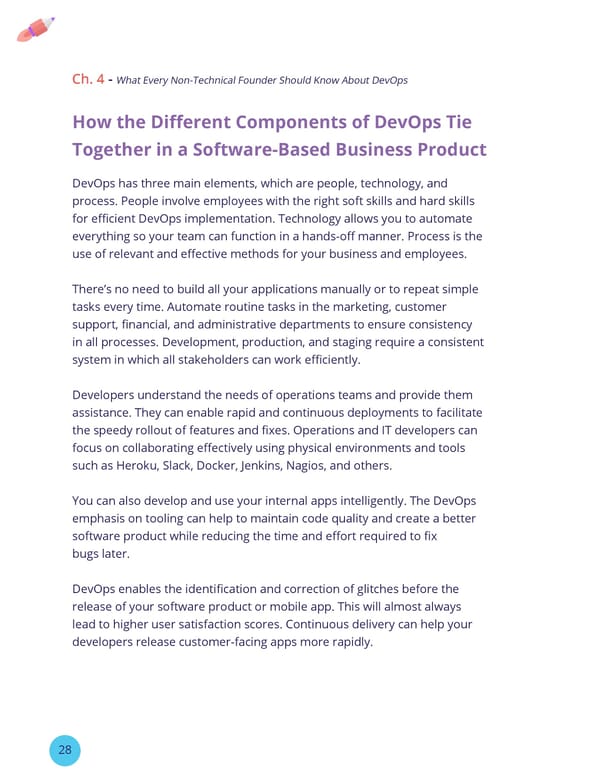Ch. 4 - What Every Non-Technical Founder Should Know About DevOps How the Different Components of DevOps Tie Together in a Software-Based Business Product DevOps has three main elements, which are people, technology, and process. People involve employees with the right soft skills and hard skills for efficient DevOps implementation. Technology allows you to automate everything so your team can function in a hands-off manner. Process is the use of relevant and effective methods for your business and employees. There’s no need to build all your applications manually or to repeat simple tasks every time. Automate routine tasks in the marketing, customer support, financial, and administrative departments to ensure consistency in all processes. Development, production, and staging require a consistent system in which all stakeholders can work efficiently. Developers understand the needs of operations teams and provide them assistance. They can enable rapid and continuous deployments to facilitate the speedy rollout of features and fixes. Operations and IT developers can focus on collaborating effectively using physical environments and tools such as Heroku, Slack, Docker, Jenkins, Nagios, and others. You can also develop and use your internal apps intelligently. The DevOps emphasis on tooling can help to maintain code quality and create a better software product while reducing the time and effort required to fix bugs later. DevOps enables the identification and correction of glitches before the release of your software product or mobile app. This will almost always lead to higher user satisfaction scores. Continuous delivery can help your developers release customer-facing apps more rapidly. 28
 The Non-Technical Founder's Guide to Building an App | CrowdBotics Page 27 Page 29
The Non-Technical Founder's Guide to Building an App | CrowdBotics Page 27 Page 29